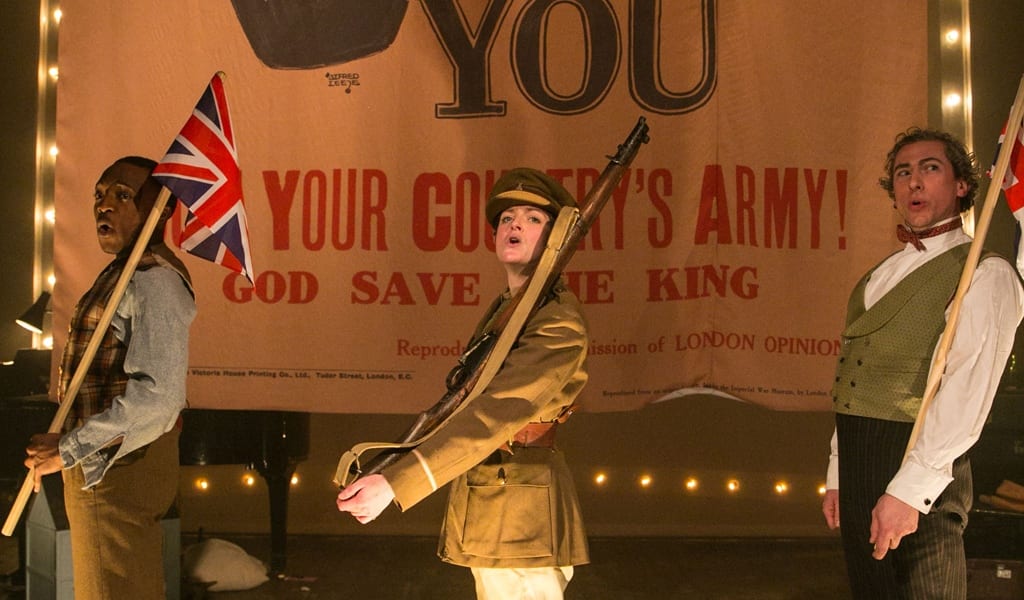The show tells the true story of Vesta Tilley, who from a very working-class family of many siblings and a dog called FatHead, follows from a very young age on the footsteps of her father to become a world-wide famous star of the music-hall as a male impersonator. However, World War One breaks out, and guided by her ferocious ambitious and opportunism, she decides to support the cause by helping to recruit soldiers to fight for king and country.
The whole casts of actors are brilliant at acting out the different characters in the play, and their talents at singing and playing different musical instruments shine through the musical compositions and arrangements specifically adapted for the purpose. We hear good old times classics of the era, such as “Daisy Bell”, “Henry the 8th”, and “Burlington Bertie” which combine infectious singing, old-fashioned humour, and inspiring story-telling.
However, while Vesta Tilley (1864-1952) might have been an inspiration for female stars in music hall entertainment, her choice to present the war as together easy and heroic to the naïve young recruits was also ethically problematic, and the show remains quite ambiguous in this regards for too long a time.
Understandably for a young audience, the newsreels shown on stage, do not give justice to the horrors and injustice of the war. However, with the display of a giant recruiting poster on which can be read “Britons wants you. Join your country’s army! God save the King”, the plays goes too far in asking the children in the audience to pretend enlisting and joining the “Vesta Tilly platoon”. Moreover, Vesta keeps receiving letters from her acquainted young recruit,Algie, when in truth, statistics show that he would have been dead after a few weeks at the Front. In “A Girl who loved a soldier”, the silent film in which Vesta plays, war is presented as a series of jokes.
In the last minutes of the show, Vesta finally realises the consequences of her acts on the lives, or rather deaths, on others, but isn’t it a bit too late?

